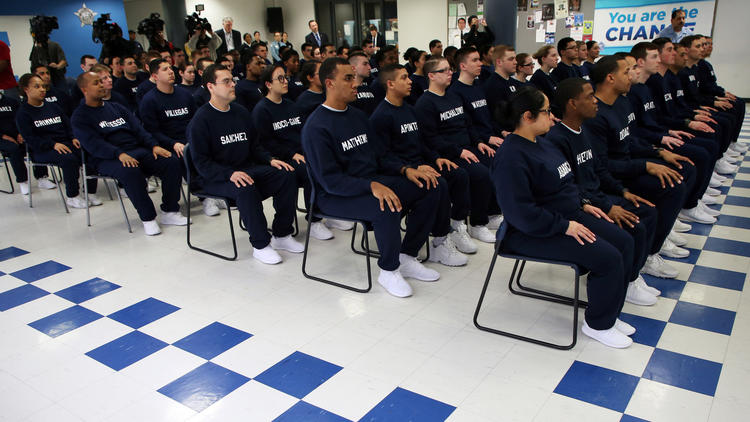A former Illinois inspector general has been picked to oversee sweeping court-mandated reforms to the troubled Chicago Police Department.
U.S. District Judge Robert Dow Jr. on Friday announced that Maggie Hickey, a former federal prosecutor who is now a partner at the law firm Schiff Hardin, will monitor the changes ordered by a consent decree aimed at repairing a department with a long record of misconduct and excessive force, particularly against minorities.
In addition, Dow said he plans to designate David Coar, a retired federal judge, to be “special master” — an appointee tasked with working on the judge’s behalf. Dow’s order did not go into detail on Coar’s role.
Friday’s announcement is another step in a reform process that started about three years ago following the release of video of white police Officer Jason Van Dyke shooting black teenager Laquan McDonald. The consent decree took effect with the monitor’s appointment, and the city now faces a series of deadlines over the next five years to satisfy a court order intended to reinvent the way police treat Chicagoans.
Dow had been expected to appoint a monitor from four finalists. By naming Hickey the monitor but also giving Coar a position, Dow gave roles to two different finalists. His one-paragraph order did not spell out what other personnel would support their work.
Hickey, who was former Republican Gov. Bruce Rauner’s executive inspector general, has been a popular choice for politicians looking to clean up messes. Last year she was tapped to investigate sexual abuse in Chicago Public Schools in the wake of a Tribune investigation. And Democratic Illinois House Speaker Michael Madigan picked her to investigate discrimination and sexual harassment at the Capitol.
Coar, who grew up in segregated Alabama, served as a U.S. district judge and bankruptcy judge in Chicago for about 25 years before retiring in 2010. His inclusion in the process gives an accomplished, local African-American attorney a role in a reform effort driven primarily by the long-standing complaints of black Chicagoans about their treatment by police.
The process of picking a monitor started about seven months ago. Lawyers for Mayor Rahm Emanuel and the attorney general’s office were expected to recommend one of the finalists to Dow.
Hickey and Coar each were put forth to serve as lead monitors with their own supporting teams of lawyers, academics and former police officers. In recent weeks the parties held numerous closed-door courthouse conferences, court records show, and the lengthy process suggested an impasse as to the final choice.
In a statement released through her law firm Friday, Hickey said, “We are humbled by the trust the city and state have placed in our team to do this important work on behalf of the people of Chicago.”
Hickey is set to have an annual budget of $2.85 million to monitor the implementation of the hundreds of changes laid out in the 229-page court order. Under the judge’s ruling, monitoring personnel are to have largely unfettered access to department officials, buildings and data as they oversee changes to training, supervision, discipline and other elements of policing.
Among other duties, Hickey will supervise the creation of new training materials and the rewriting of reams of department policies. She will be responsible for reporting on the city’s compliance with the consent decree to the judge, who has the authority to order the city to abide by the document.
The consent decree is built upon a yearlong investigation by the U.S. Department of Justice that culminated in a January 2017 report that described a dysfunctional police force staffed by badly trained and supervised officers prone to using excessive force.
When Emanuel wavered on the need for court oversight, then-Illinois Attorney General Lisa Madigan sued the city in August 2017 to force the court’s involvement, and the mayor went along with the litigation. Aides to the two politicians spent months hammering out the decree.
Emanuel said in a statement Friday that the consent decree would “ensure a better city, a better CPD, and safer streets.”
Madigan did not run for re-election, and her successor, Attorney General Kwame Raoul, inherited her role as plaintiff in the litigation.
“Now that all of the pieces are in place, we can begin the process of reforming the police department to restore residents’ trust in the officers sworn to protect them,” Raoul said in a statement Friday.
Many of the order’s provisions are mandates for the department to study and identify problems and revise its policies, and it will take years for some details to be worked out. The decree also calls for specific changes. For example, by July, officers will have to start reporting incidents in which they point guns at people.
dhinkel@chicagotribune.com
Twitter @danhinkel







